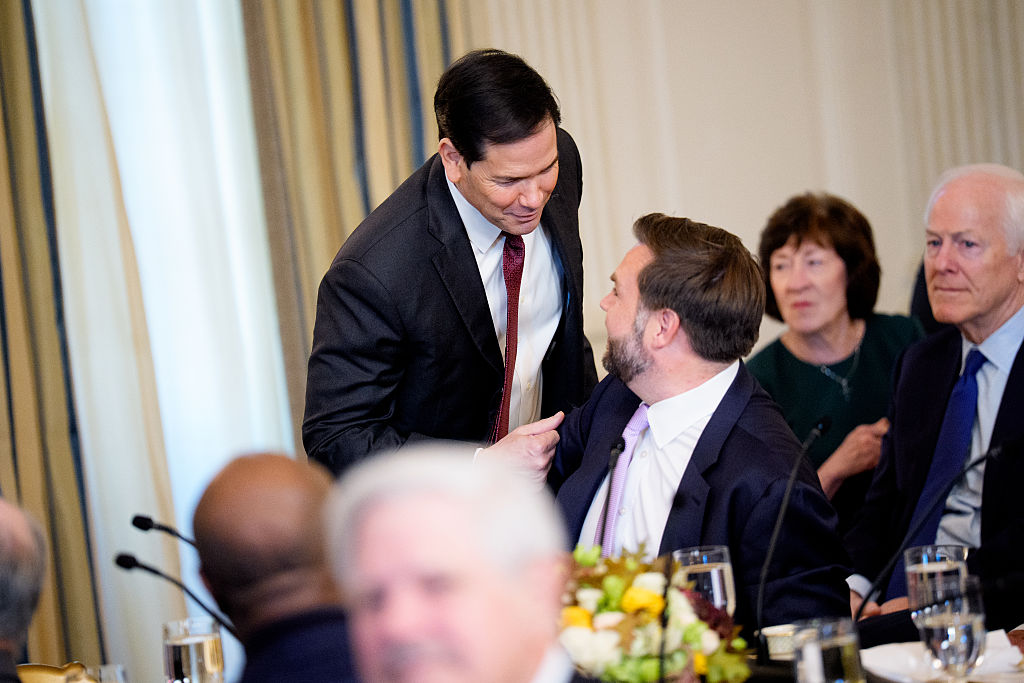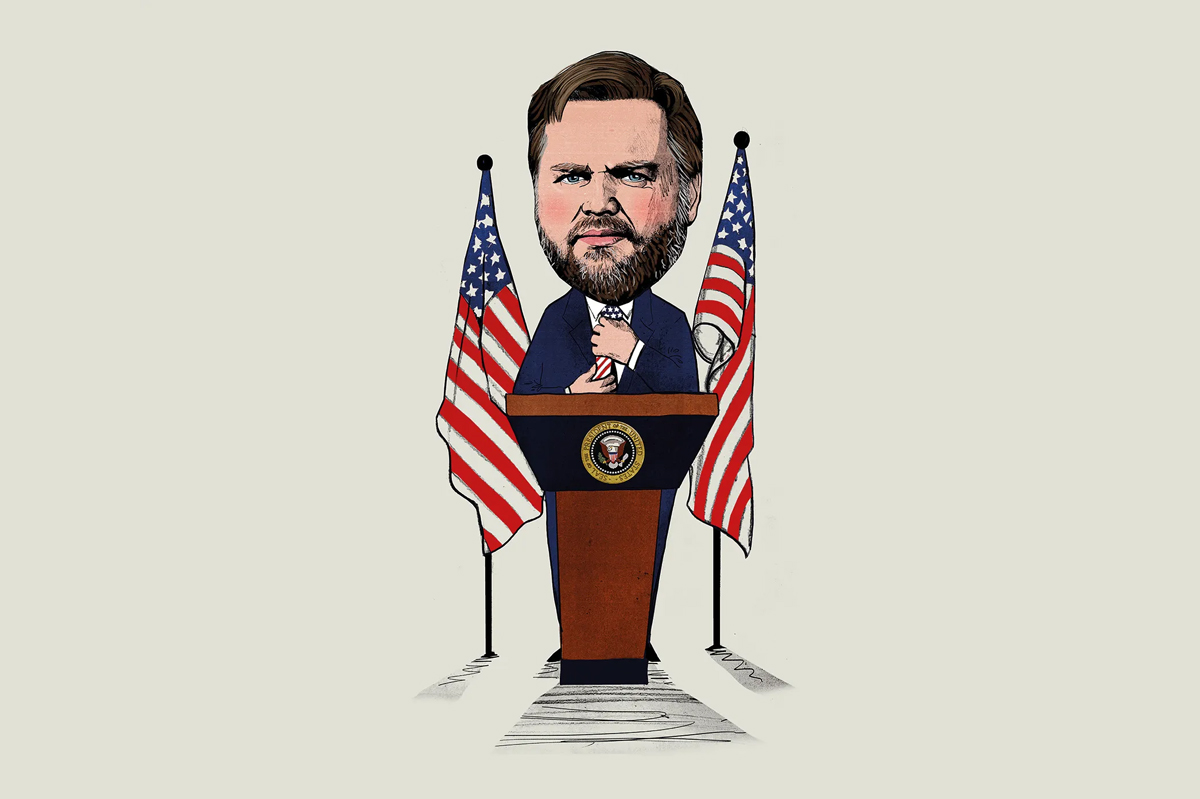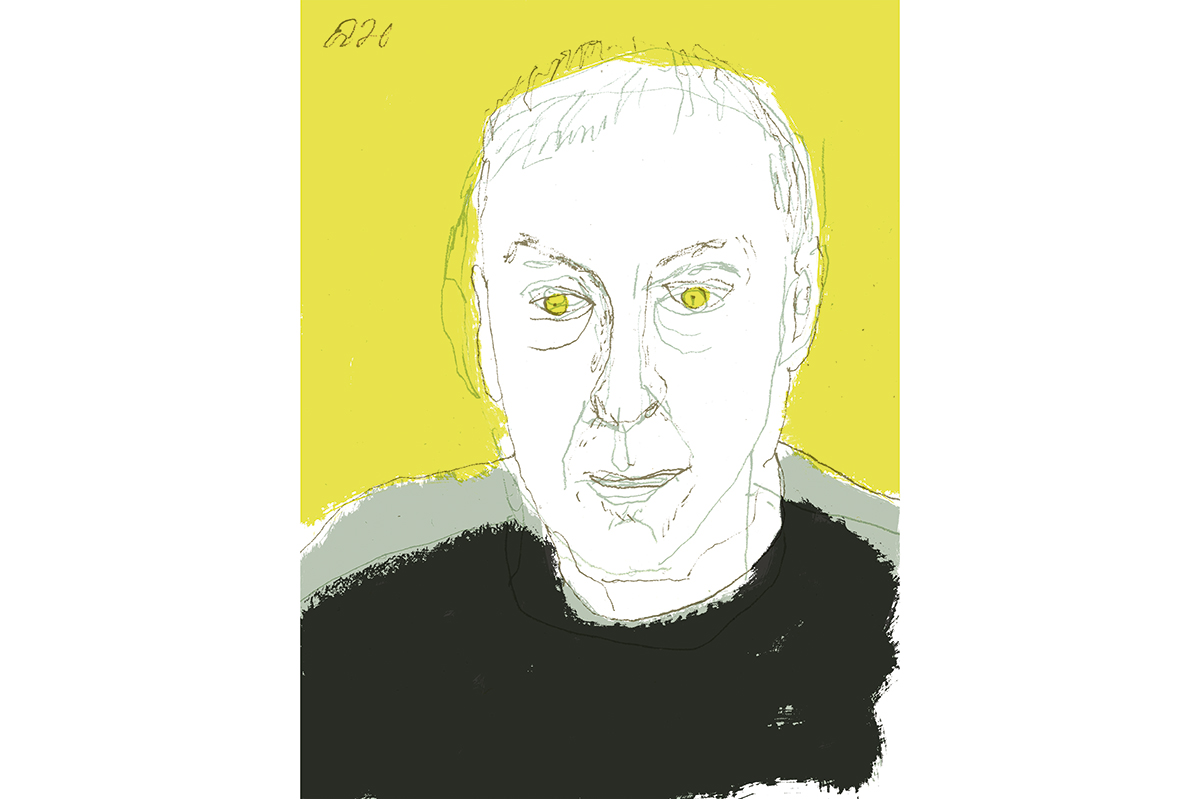Are these the End Times? It certainly feels that way. Algorithmic demons are rewiring our brains. A young father is shot and killed, and people cheer. A woman is stabbed on a train, and no one tries to help her. The horrifying videos of these incidents are then watched millions of times over, often by children. The God in whom America trusts seems nowhere to be found.
Can’t you hear the Antichrist knocking? Peter Thiel can. Not so long ago, no public figure outside of the kookier Evangelical universe would have dared admit such a thing, but times have changed.
Tech mavens argue that Silicon Valley’s engineers should see their work as part of a greater divine plan
Tucker Carlson, one of America’s best-known conservative pundits, speaks openly about having been attacked by a demon. Mainstream commentators discuss the rise of “Moloch” – a Canaanite god they associate with rogue AI employees of Sam Altman’s OpenAI, who have been reported to burn effigies and chant in a ritualistic way as they work on creating artificial general intelligence. “Feel the AGI! Feel the AGI!”
It’s not just in the US that this notion has taken hold. Margarita Simonyan, editor-in-chief of Russia Today, recently suggested Elon Musk was bringing about the arrival of the Antichrist: “Everything is moving in this direction… We are moving towards losing ourselves as a species.”
And Thiel, mentor to Vice-President J.D. Vance and titan of Silicon Valley, has become obsessed with Christian prophecies of the apocalypse. “We are sleepwalking into Armageddon,” he said on a recent podcast, but added ominously: “You should be way more worried about the Antichrist.”
It’s easy to be cynical about this. Thiel’s company Palantir – the darling of the US Department of War – makes defense and intelligence software. Someone will need to make a scythe for Death when he comes riding in on his pale horse. Any cataclysmic final battle between good and evil before Christ’s return would probably be a great boon for the shareholders and add to Thiel’s $25 billion fortune.
But Thiel seems genuinely anxious. The nightmare he foresees is a global, totalitarian, homogenous state and a leader who brings it about and then rules that state. Thiel’s Antichrist is a gray bureaucratic figure with tentacles flopping across the planet. He’s worried enough that he’s dedicated four evenings this month and next to hosting a sold-out, off-the-record lecture series in San Francisco, titled “The Antichrist.”
If there’s one thing Thiel resents above all else, it’s stagnation – technological, moral, civil. In the world overseen by his Antichrist, people would no longer need to ask serious political and moral questions because everything significant would be decided by the regulatory, global state. It would be something like institutionalized Marxism; in other words, a force determined to end the pursuit of wisdom and, with it, wisdom itself.
In order to ensure no rogue enemies arise, the one-world state would need to exercise total control over all technology and maintain a vast surveillance network. Any new technology that could potentially be used to threaten the state’s power would need to be regulated, and revolutionary developments would be squashed. The world’s population would be cowed into accepting this state based on fear of some existential catastrophe: nuclear war, climate change, artificial-intelligence rebellion. Pick your poison.
We’re already drifting toward this satanic stagnation, says Thiel. Who’s to blame? The hippies, at least in part. Progressivism has scuppered progress. Thiel told the New York Times in a recent interview: “We landed on the moon in July of 1969, Woodstock started three weeks later and, with the benefit of hindsight, that’s when progress stopped and the hippies won.”
Scientific progress stalled around then, apparently, because, as Americans mulled over the horrors of nukes and the Vietnam War, they grew distrustful of technology. Pessimism replaced optimism and the innovators who once pushed the boundaries of human achievement turned instead to entertainment. Video-game developers replaced rocket scientists. App developers replaced nuclear physicists.
Other Valley types are embracing Biblical reality, too. A new nonprofit “collective” called ACTS17 – short for “Acknowledging Christ in Technology and Society” – has been selling out events. Tech mavens appear on stage, arguing that the Valley’s engineers should see their work as one part of a greater divine plan.
One media clip shows Trae Stephens, the co-founder of defense company Anduril, telling a room of (mostly) young men: “I’m, like, literally an arms dealer” – pauses for laughter – “that’s a pretty unique calling.” He continues, with a smile, “I think you have to lean into your gifts and figure out what that quest is you’re supposed to be on.”
And then there is Silicon Valley heavweight Garry Tan, chief executive of Y Combinator, whose venture-capital firm has launched tech companies with a combined value of $600 billion. Last year, he hosted an event in his house to discuss how the teachings of the Bible could intersect with technology. “LSD and shrooms won’t fill the God-shaped hole in your heart. Guess what might?” he posted. Silicon Valley is going back to Church.
You do rather get the sense that a lot of these techies think they are the first to discover that faith provides purpose. But their newly discovered Christianity comes with a self-serving twist: they, the tech titans, see themselves as the new apostles. In this brave new world, Christianity will save tech and tech will save Christianity.
In this new world, Christianity will save tech, and tech will save Christianity
But if that makes your skin crawl, there are other 21st-century prophets of a very different type, pushing quite the opposite message. Paul Kingsnorth, an English author and thinker, is in many ways the anti-Thiel. He’s a mix between Frodo Baggins and Ted Kaczynski and politically unclassifiable. He’s part red-blooded conservative, part radical tree-hugger. He hates communism as much as he hates capitalism and he thinks cities inevitably corrupt humanity. He believes there’s something immoral about Alexa, cars and phones. Most of all, he hates “the Machine.” This is the subject of his recent book Against the Machine, which is forceful and gracefully argued.
According to Kingsnorth, the “Machine” is “progress” and the never-ending pursuit of growth – technological, societal, governmental. It is nearly everything we Enlightenment and post-Enlightenment people take pride in.
The first time I heard Kingsnorth speak was at a gathering of very conservative, very Christian New Yorkers last fall where he delivered a lecture, “Against Christian Civilization,” which much of the audience refused to applaud. Some jeered. The upshot of this lecture and Against the Machine is that the West is dying or dead. This is a common topic of conversation in these circles; what is not common is Kingsnorth’s conclusion: “I want to say that this ‘West’ is not a thing to be ‘conserved’: not now. It is a thing to be superseded. It is an albatross around our necks.”
The West, he believes, is actively giving birth to the Antichrist. Unlike Thiel, however, Kingsnorth believes technology is triggering the Beast’s arrival. As Kingsnorth sees it, modern technology is something we only tell ourselves we have control over, when in fact it is incubating Satan’s spawn – and our brightest scientists are acting as its midwives. The deceiver will manifest himself via artificial intelligence: “‘AI’ on the right lips can sound just like another way of saying ‘Antichrist,’” says Kingsnorth. “Humor me,” he says, adding:
Imagine for a moment that some force is active in the world which is beyond us… Perhaps it is independent of us. Perhaps it created itself and uses us for its ends. Either way, in recent years that force seems to have become manifest in some way we can’t quite put our finger on, and has stimulated the craziness of the times… This force seems to be, in some inexplicable way, independent of us, and yet acting within us too. Let’s give this force a name: a less provocative name, for now, than Moloch or Antichrist. Let’s keep it simple. Let’s just call this force “Progress.”
Progress or the Antichrist, a rose by any other name. Something in our technology and way of seeing the world is detaching us from reality, both natural and supernatural, uprooting us from the earth. Kingsnorth’s recommendation is to smash the screens, leave the cities, come to the hills, light fires and dance.
Thiel believes that to behave like this – though perhaps beneficial for personal sanctification – would be to hurry our own downfall; a move guaranteed to empower the most power-crazed, destructive individuals. Kingsnorth might not disagree – but he’s not interested in saving this world. He wants a new world to be born. And that requires this one to die.
Thiel and Kingsnorth, our magician and our hermit, appear diametrically opposed – and in some ways, they are. But listen more closely to both of them and you’ll begin to hear echoes of the same tune. These two prophets agree that the Enlightenment and the liberal order will kill us all and that only a re-spiritualization can save us.
But whose path should we take? There’s a lot on the line. Namely, our souls.
This article was originally published in The Spectator’s September 29, 2025 World edition.























Leave a Reply